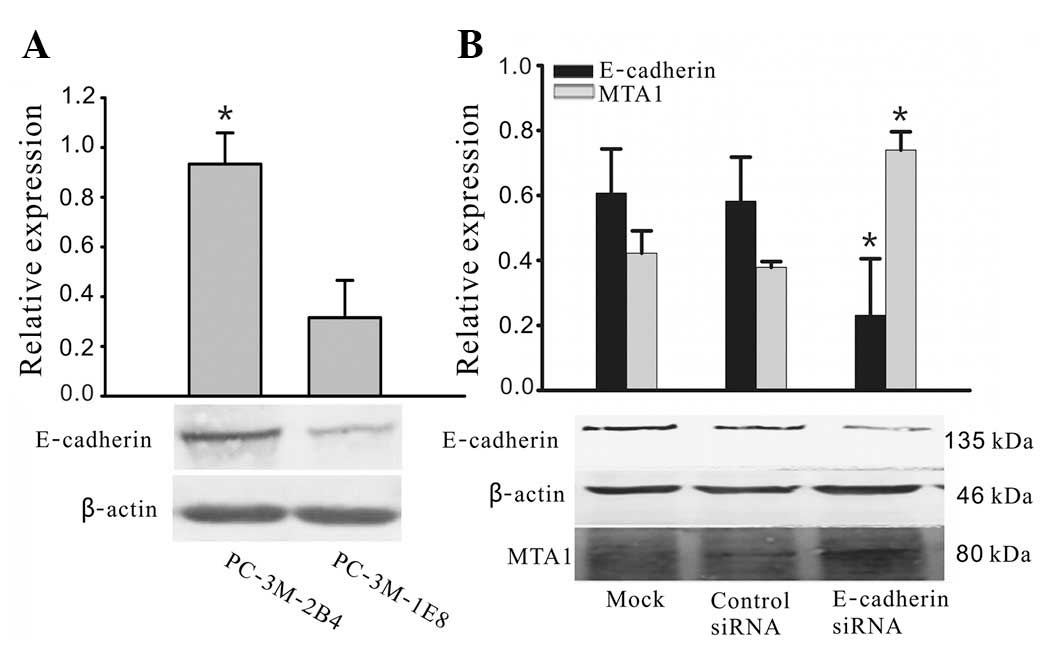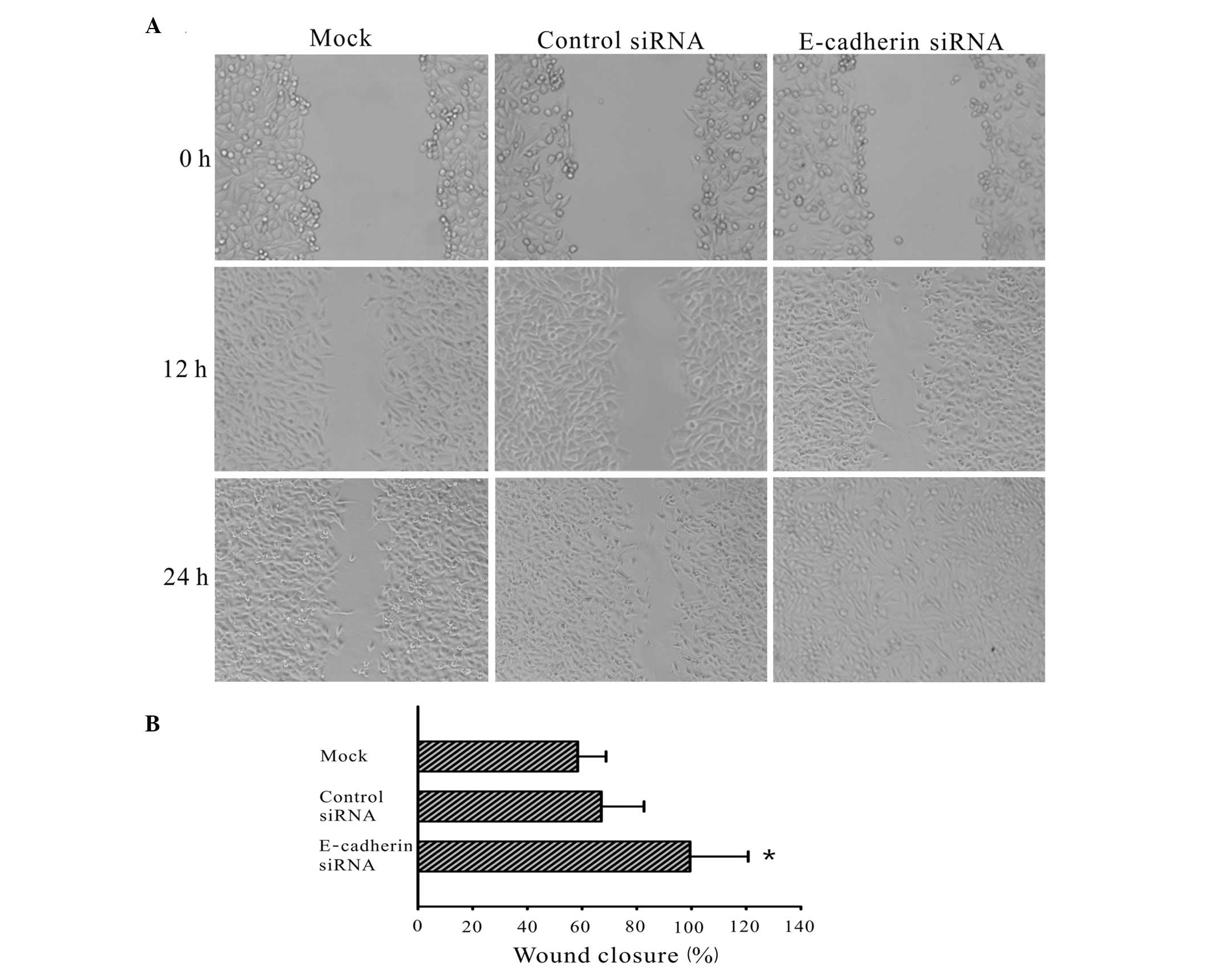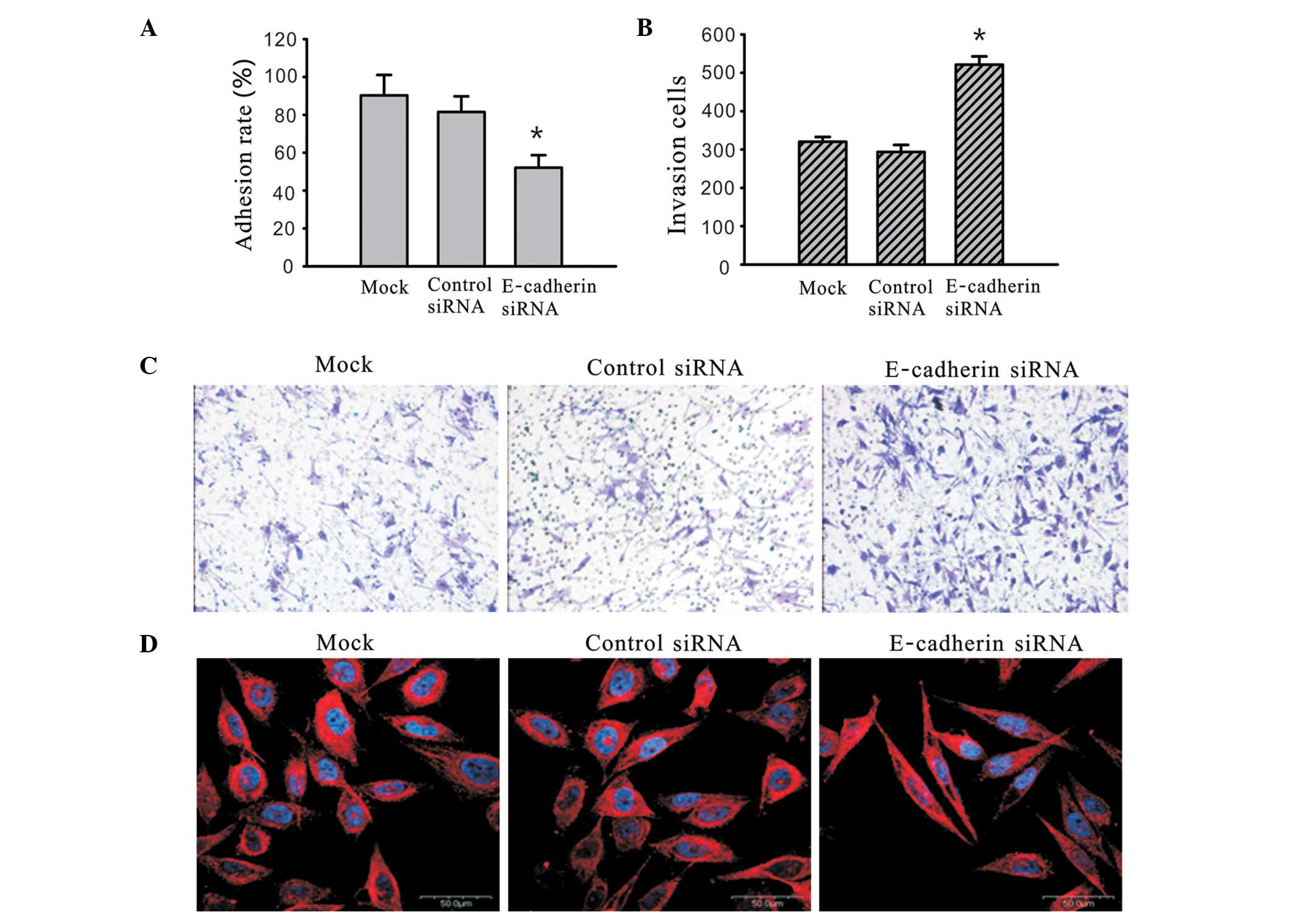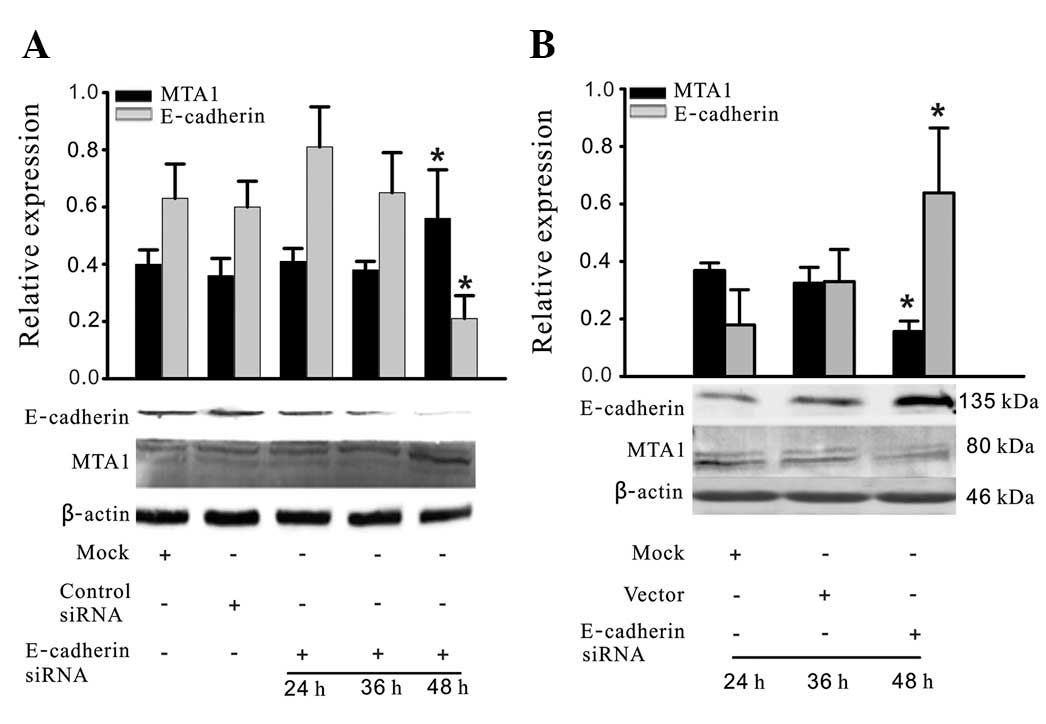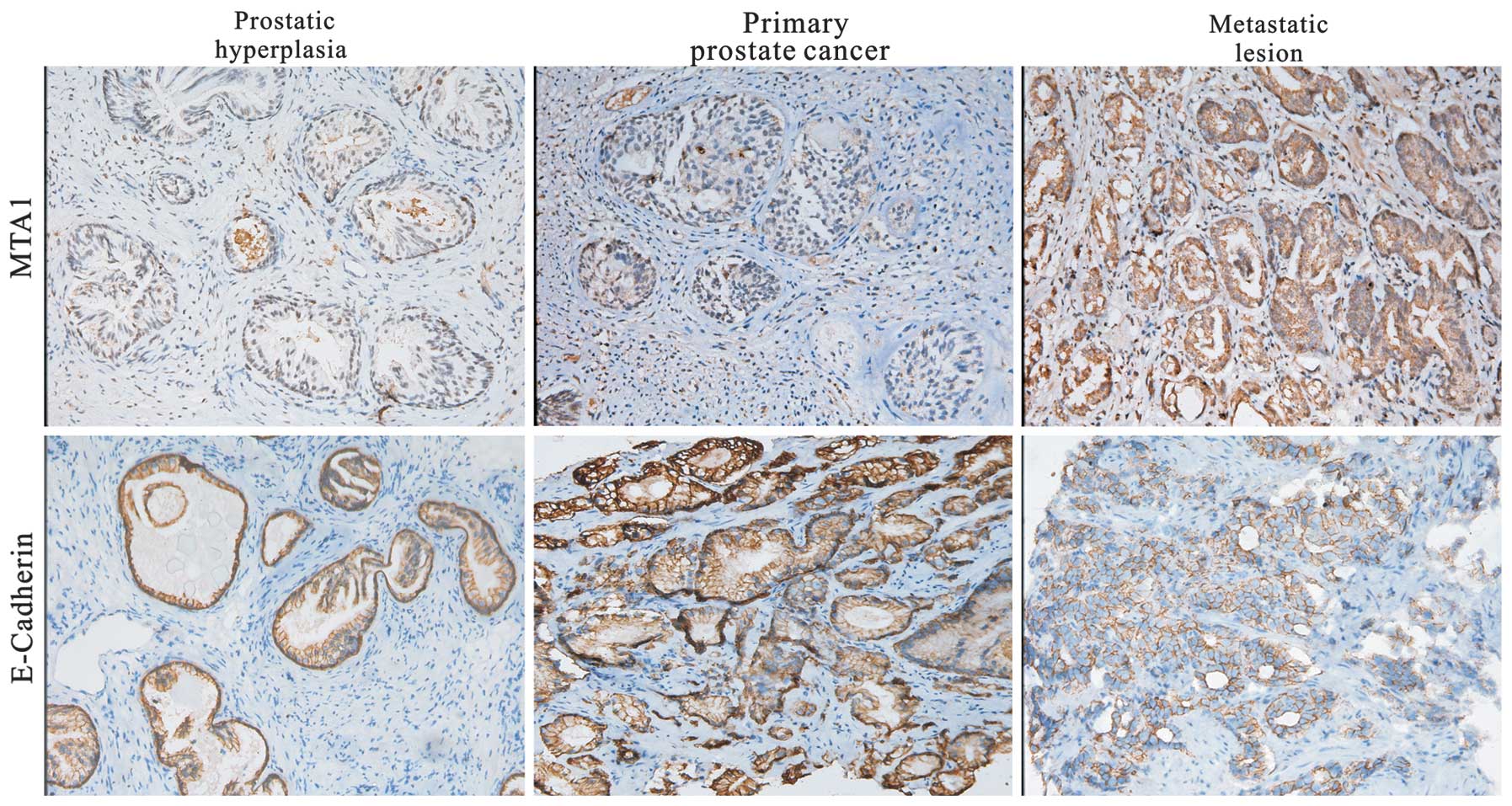|
1.
|
R SiegelE WardO BrawleyA JemalCancer
statistics, 2011: the impact of eliminating socioeconomic and
racial disparities on premature cancer deathsCA Cancer J
Clin61212236201110.3322/caac.2012121685461
|
|
2.
|
P BoyleJ FerlayCancer incidence and
mortality in Europe, 2004Ann
Oncol16481488200510.1093/annonc/mdi09815718248
|
|
3.
|
GR MundyMetastasis to bone: causes,
consequences and therapeutic opportunitiesNat Rev
Cancer2584593200210.1038/nrc86712154351
|
|
4.
|
CJ LogothetisSH LinOsteoblasts in prostate
cancer metastasis to boneNat Rev
Cancer52128200510.1038/nrc152815630412
|
|
5.
|
SA EcclesDR WelchMetastasis: recent
discoveries and novel treatment
strategiesLancet36917421757200710.1016/S0140-6736(07)60781-817512859
|
|
6.
|
T OkegawaRC PongY LiJT HsiehThe role of
cell adhesion molecule in cancer progression and its application in
cancer therapyActa Biochim Pol51445457200415218541
|
|
7.
|
T BogenriederM HerlynAxis of evil:
molecular mechanisms of cancer
metastasisOncogene2265246536200310.1038/sj.onc.120675714528277
|
|
8.
|
U CavallaroE DejanaAdhesion molecule
signalling: not always a sticky businessNat Rev Mol Cell
Biol12189197201110.1038/nrm306821346732
|
|
9.
|
MA HuberN KrautH BeugMolecular
requirements for epithelial-mesenchymal transition during tumor
progressionCurr Opin Cell
Biol17548558200510.1016/j.ceb.2005.08.00116098727
|
|
10.
|
U CavallaroG ChristoforiCell adhesion and
signalling by cadherins and Ig-CAMs in cancerNat Rev
Cancer4118132200410.1038/nrc127614964308
|
|
11.
|
D HanahanRA WeinbergHallmarks of cancer:
the next
generationCell144646674201110.1016/j.cell.2011.02.01321376230
|
|
12.
|
G BerxF van RoyInvolvement of members of
the cadherin superfamily in cancerCold Spring Harb Perspect
Biol1a003129200910.1101/cshperspect.a00312920457567
|
|
13.
|
K SawadaAK MitraAR RadjabiLoss of
E-cadherin promotes ovarian cancer metastasis via alpha 5-integrin,
which is a therapeutic targetCancer
Res6823292339200810.1158/0008-5472.CAN-07-516718381440
|
|
14.
|
TT OnderPB GuptaSA ManiJ YangES LanderRA
WeinbergLoss of E-cadherin promotes metastasis via multiple
downstream transcriptional pathwaysCancer
Res6836453654200810.1158/0008-5472.CAN-07-293818483246
|
|
15.
|
A SinghJ SettlemanEMT, cancer stem cells
and drug resistance: an emerging axis of evil in the war on
cancerOncogene2947414751
|
|
16.
|
M YilmazG ChristoforiEMT, the
cytoskeleton, and cancer cell invasionCancer Metastasis
Rev281533200910.1007/s10555-008-9169-019169796
|
|
17.
|
G Moreno-BuenoF PortilloA
CanoTranscriptional regulation of cell polarity in EMT and
cancerOncogene2769586969200810.1038/onc.2008.34619029937
|
|
18.
|
K GravdalOJ HalvorsenSA HaukaasLA AkslenA
switch from E-cadherin to N-cadherin expression indicates
epithelial to mesenchymal transition and is of strong and
independent importance for the progress of prostate cancerClin
Cancer Res1370037011200710.1158/1078-0432.CCR-07-1263
|
|
19.
|
YN LiuY LiuHJ LeeYH HsuJH ChenActivated
androgen receptor downregulates E-cadherin gene expression and
promotes tumor metastasisMol Cell
Biol2870967108200810.1128/MCB.00449-0818794357
|
|
20.
|
Y TohSD PencilGL NicolsonA novel candidate
metastasis-associated gene, mta1, differentially expressed in
highly metastatic mammary adenocarcinoma cell lines. cDNA cloning,
expression, and protein analysesJ Biol Chem26922958229631994
|
|
21.
|
B ManavathiS PengSK RayalaRepression of
Six3 by a corepressor regulates rhodopsin expressionProc Natl Acad
Sci USA1041312813133200710.1073/pnas.070587810417666527
|
|
22.
|
H QianN LuL XueReduced MTA1 expression by
RNAi inhibits in vitro invasion and migration of esophageal
squamous cell carcinoma cell lineClin Exp
Metastasis22653662200510.1007/s10585-006-9005-216703414
|
|
23.
|
C DannenmannN ShabaniK FrieseU JeschkeI
MylonasA BruningThe metastasis-associated gene MTA1 is upregulated
in advanced ovarian cancer, represses ERbeta, and enhances
expression of oncogenic cytokine GROCancer Biol
Ther714601467200810.4161/cbt.7.9.642718719363
|
|
24.
|
SH RyuYH ChungH LeeMetastatic tumor
antigen 1 is closely associated with frequent postoperative
recurrence and poor survival in patients with hepatocellular
carcinomaHepatology47929936200810.1002/hep.2212418306220
|
|
25.
|
GL NicolsonA NawaY TohS TaniguchiK
NishimoriA MoustafaTumor metastasis-associated human MTA1 gene and
its MTA1 protein product: role in epithelial cancer cell invasion,
proliferation and nuclear regulationClin Exp
Metastasis201924200310.1023/A:1022534217769
|
|
26.
|
Y TohGL NicolsonThe role of the MTA family
and their encoded proteins in human cancers: molecular functions
and clinical implicationsClin Exp
Metastasis26215227200910.1007/s10585-008-9233-819116762
|
|
27.
|
SB PakalaK SinghSD ReddyTGF-β1 signaling
targets metastasis-associated protein 1, a new effector in
epithelial cellsOncogene3022302241
|
|
28.
|
E RadaelliP DamonteRD
CardiffEpithelial-mesenchymal transition in mouse mammary
tumorigenesisFuture Oncol511131127200910.2217/fon.09.9319852725
|
|
29.
|
H QianJ YuY LiRNA interference of
metastasis-associated gene 1 inhibits metastasis of B16F10 melanoma
cells in a C57BL/6 mouse modelBiol
Cell99573581200710.1042/BC2006013017868030
|
|
30.
|
Y RaoH WangL FanG ChenSilencing MTA1 by
RNAi reverses adhesion, migration and invasiveness of cervical
cancer cells (SiHa) via altered expression of p53, and
E-cadherin/β-catenin complexJ Huazhong Univ Sci Technolog Med
Sci3119201121336715
|
|
31.
|
NC HuntAG Douglas-JonesB JasaniJM MorganM
PignatelliLoss of E-cadherin expression associated with lymph node
metastases in small breast carcinomasVirchows
Arch430285289199710.1007/BF010927519134039
|
|
32.
|
B ManavathiR KumarMetastasis tumor
antigens, an emerging family of multifaceted master coregulatorsJ
Biol Chem28215291533200710.1074/jbc.R60002920017142453
|
|
33.
|
Y LiuJ ZhengW FangIsolation and
characterization of human prostate cancer cell subclones with
different metastatic potentialZhonghua Bing Li Xue Za
Zhi283613641999(In Chinese)
|
|
34.
|
YL ChaoCR ShepardA WellsBreast carcinoma
cells re-express E-cadherin during mesenchymal to epithelial
reverting transitionMol
Cancer9179201010.1186/1476-4598-9-17920609236
|
|
35.
|
PJ KowalskiMA RubinCG KleerE-cadherin
expression in primary carcinomas of the breast and its distant
metastasesBreast Cancer Res5R217R222200310.1186/bcr65114580257
|
|
36.
|
J von BurstinS EserMC PaulE-cadherin
regulates metastasis of pancreatic cancer in vivo and is suppressed
by a SNAIL/HDAC1/HDAC2 repressor complexGastroent
erology137361371200919362090
|
|
37.
|
B TangZH PengPW YuG YuF QianExpression and
significance of Cx43 and E-cadherin in gastric cancer and
metastatic lymph nodesMed
Oncol28502508201110.1007/s12032-010-9492-520373058
|
|
38.
|
L ChengM NagabhushanTP PretlowSB AminiTG
PretlowExpression of E-cadherin in primary and metastatic prostate
cancerAm J Pathol1481375138019968623909
|
|
39.
|
MA RubinNR MucciJ FigurskiA FeckoKJ
PientaML DayE-cadherin expression in prostate cancer: a broad
survey using high-density tissue microarray technologyHum
Pathol32690697200110.1053/hupa.2001.25902
|
|
40.
|
Q MaoX ZhengK YangSuppression of migration
and invasion of PC3 prostate cancer cell line via activating
E-cadherin expression by small activating RNACancer
Invest2810131018201010.3109/0735790080262084420690797
|
|
41.
|
J Pontes JrM SrougiPM BorraMF Dall’
OglioLA Ribeiro-FilhoKR LeiteE-cadherin and beta-catenin loss of
expression related to bone metastasis in prostate cancerAppl
Immunohistochem Mol
Morphol18179184201010.1097/PAI.0b013e3181640bca18685493
|
|
42.
|
L ZhangG WangL WangC SongX WangJ
KangValproic acid inhibits prostate cancer cell migration by
up-regulating E-cadherin
expressionPharmazie66614618201121901986
|
|
43.
|
H ZhangLC StephensR KumarMetastasis tumor
antigen family proteins during breast cancer progression and
metastasis in a reliable mouse model for human breast cancerClin
Cancer Res1214791486200610.1158/1078-0432.CCR-05-1519
|
|
44.
|
MD HoferR KueferS VaramballyThe role of
metastasis-associated protein 1 in prostate cancer
progressionCancer
Res64825829200410.1158/0008-5472.CAN-03-275514871807
|
|
45.
|
JP ThieryEpithelial-mesenchymal
transitions in tumour progressionNat Rev
Cancer2442454200210.1038/nrc82212189386
|
|
46.
|
K PolyakRA WeinbergTransitions between
epithelial and mesenchymal states: acquisition of malignant and
stem cell traitsNat Rev
Cancer9265273200910.1038/nrc262019262571
|
|
47.
|
PJ RichmondAJ KarayiannakisA NagafuchiAV
KaisaryM PignatelliAberrant E-cadherin and alpha-catenin expression
in prostate cancer: correlation with patient survivalCancer
Res573189319319979242448
|
|
48.
|
L Di CrocePG PelicciTumour-associated
hypermethylation: silencing E-cadherin expression enhances invasion
and metastasisEur J Cancer39413414200312751369
|
|
49.
|
M MaedaKR JohnsonMJ WheelockCadherin
switching: essential for behavioral but not morphological changes
during an epithelium-to-mesenchyme transitionJ Cell
Sci118873887200510.1242/jcs.0163415713751
|
|
50.
|
G ChristoforiNew signals from the invasive
frontNature441444450200610.1038/nature0487216724056
|















